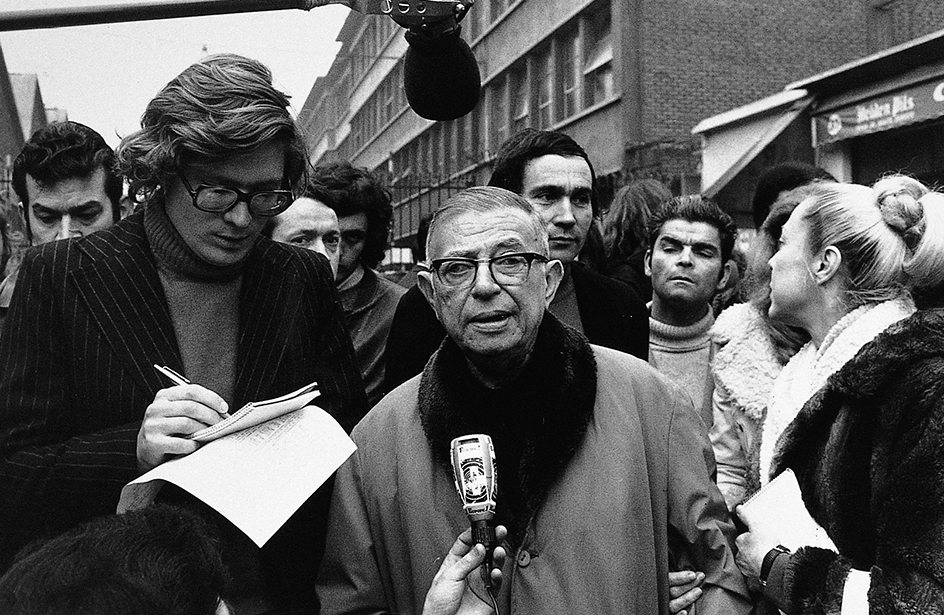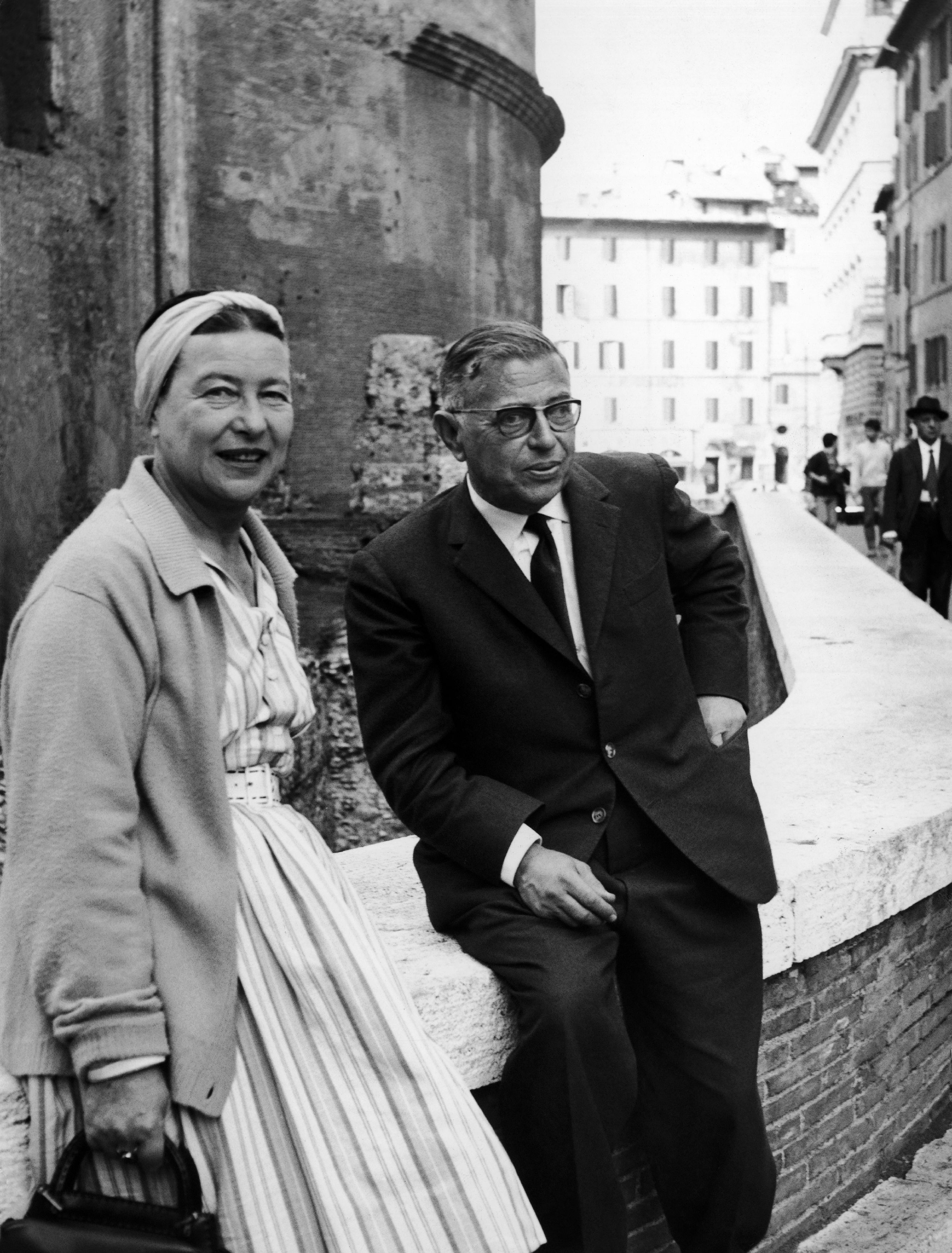Sartre, Jean-Paul, << SAHR truh, zhahn pawl >> (1905-1980), was a French Existentialist philosopher who expressed his ideas in novels, plays, and short stories, as well as in theoretical works.

The bare existence of things, especially his own existence, fascinated and horrified Sartre, because there seems to be no reason why anything should exist. In his first novel, Nausea (1938), he described the horror and mystery which a man experiences when he considers the unexplainable fact of a thing’s existence.
In his chief philosophical work, Being and Nothingness (1943), Sartre investigated the nature and forms of existence or being. He claimed that human existence, which he called “being-for-itself,” is radically different from the existence of such inanimate objects as tables, which he called “being-in-itself.” Sartre said that only human existence is conscious of itself and of other things. He argued that inanimate objects simply are what they are; however, people are whatever they choose to be. Sartre said that a person is not a coward, for example, in the same simple way that a table is only a table. A person is a coward only by choice. Sartre said that a person, unlike a table, has no fixed character or “essence” that has been assigned. Primarily, people “exist” as beings who must choose their own character or “essence.” Thus, in his essay Existentialism and Humanism (1946), he defined Existentialism as the doctrine that, for humankind, “existence precedes essence.” See Existentialism.
Sartre believed that people are completely free, but are afraid to recognize this freedom and to accept full responsibility for their behavior, which such freedom implies. Thus, people tend to deceive themselves about their true situation. Throughout his philosophical and literary works, Sartre examined and analyzed the varied and subtle forms of self-deception.
Sartre criticized Sigmund Freud’s psychoanalytic theory of human behavior and offered his own “Existential psychoanalysis.” Sartre said the ultimate motive for all human behavior is the desire to achieve perfect self-sufficiency by becoming the cause of one’s own existence. However, he argued that this goal is self-contradictory and impossible to attain. Therefore, he considered all human activity ultimately futile. As Sartre said: “Man is a useless passion.” He identified this idea of perfectly self-sufficient beings who are the cause of their own existence as the traditional idea of God. According to Sartre, each of us wants to become God, and God cannot possibly exist. In the Critique of Dialectical Reason (1964), Sartre presented his political and sociological theories, which he considered to be a form of Marxism. 
Sartre’s plays include The Flies (1943), No Exit (1944), Dirty Hands (1948), and The Condemned of Altona (1959). He wrote The Roads of Freedom, a sequence of novels including The Age of Reason (1945), The Reprieve (1945), and Troubled Sleep (1949). He applied his psychoanalytic theories in his biographies, Baudelaire (1947), Saint Genet (1953), and Flaubert (1971). Words (1963) is an autobiographical account of his youth.
Sartre was born on June 21, 1905, in Paris. He studied there at the Ecole Normale Superieure. During World War II (1939-1945), he fought in the French Army and was active in the French resistance movement. Sartre founded the monthly review Les Temps Modernes in 1945 and served as its editor. In 1964, Sartre was awarded the Nobel Prize in literature. However, he refused to accept the award. He died on April 15, 1980.
